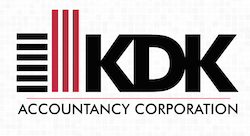Start preparing now to save money next tax season by accounting for these tax-deductible business expenses.
Many small business owners aren’t aware, but they’re often eligible for lots of different tax deductions from the government.
Sure, most entrepreneurs know to deduct expenses like employee salaries and benefits, the cost of goods sold, and rent. But there are some more unusual opportunities for small business owners, too.
It can be difficult to figure out exactly which deductions you qualify for—especially if you don’t keep meticulous records or set aside time to pore over your expenses—but any tax deduction you don’t take advantage of is just money left on the table.
So, when tax season comes knocking, refer to this list of eight little-known tax deductions you should be aware of—and save money for your small business.
1. Utilities
You might already be well aware that you can deduct your business’ rent payments from your taxes—and even if you work from home, you can calculate a percentage of your rent to deduct based off of how much space you use for your business.
But did you know you should be deducting your utilities payments, too?
From telephone calls to electricity and water bills, your small business is eligible to save money here. However, you doneed to make sure that you’re only deducting business expenses and not personal ones. Keep records of business versus personal phone calls when deducting from your telephone bill, and save your utilities bills as well.
2. Insurance
Business insurance is generally not a bad idea: Nine times out of 10, you’ll be extremely glad you made those small monthly payments if something unexpected occurs.
And as an added bonus, many types of business insurance are actually tax deductible. From health insurance to workers’ compensation, make sure you put these premium payments on your tax forms next year.
3. Equipment & Machinery Payments
There are plenty of good reasons to rent your equipment and machinery instead of buying them. From upgrade flexibility to lower upfront costs, and even the possibility of financing, it can be a compelling option.
One more advantage: You can deduct your rental payments from your taxes. (Plus, you can also deduct any repairs you need to make as well.)
4. Car Expenses
When it comes to your vehicle, there are a few different tax deductions that many small business owners forget about.
You can use the standard mileage rate—57.5 cents per mile as of 2015—to deduct the amount you drive for business purposes. Then, you can deduct any of the following fees relating to a business use of your car, van, truck, or any sort of motor vehicle:
- Parking fees
- Advertising decals
- Union member trips
- Gas and oil
- Tire maintenance
- General auto repair
- Registration fees
If you’re not the type of person who can keep up a consistent, accurate log of everywhere you drive, to the 10th of the mile, every day—not to worry. Here’s a great guide to calculating your business auto expenses for the tax deduction you deserve.
You can read the other half of this article on Manta here: http://bit.ly/2jcwFUR





